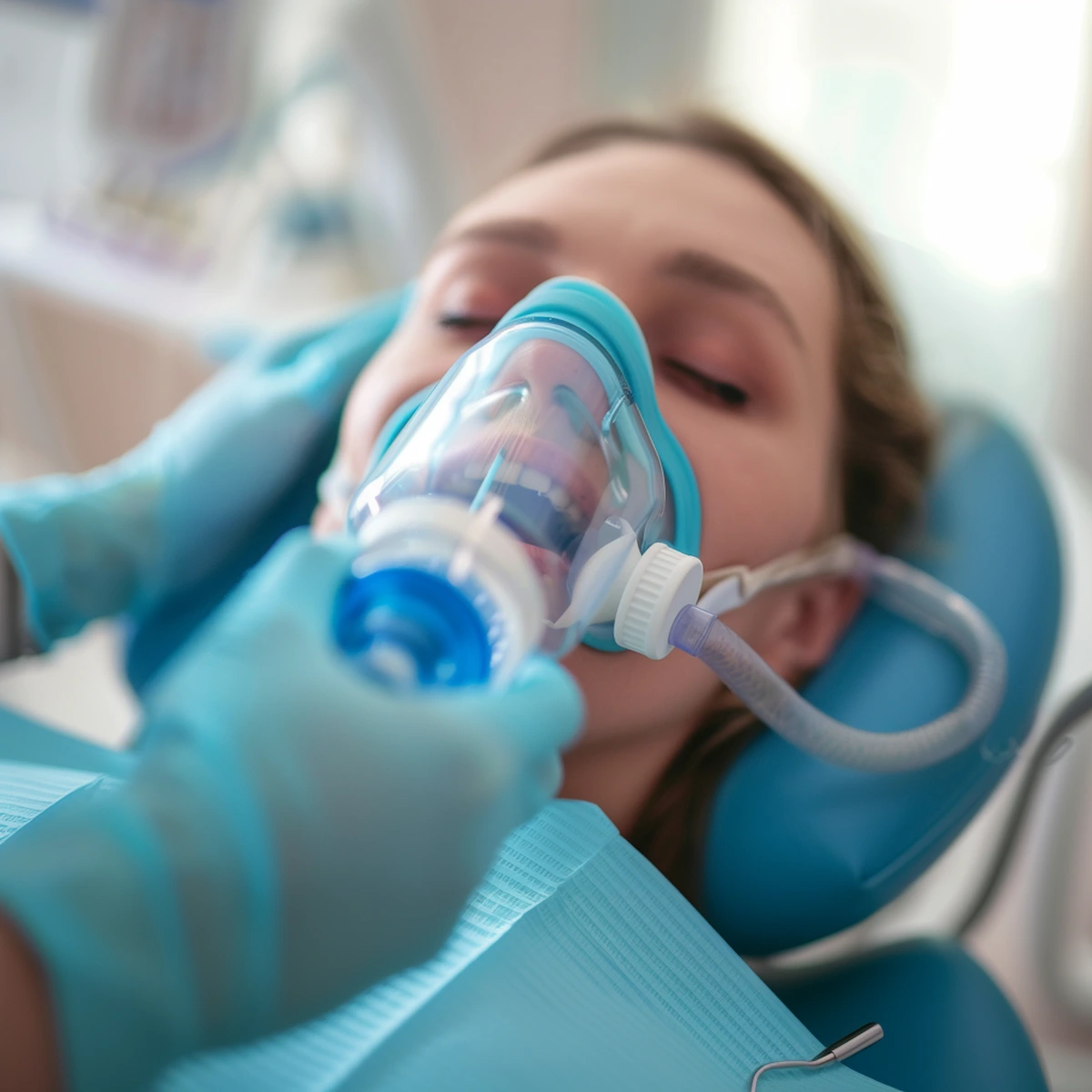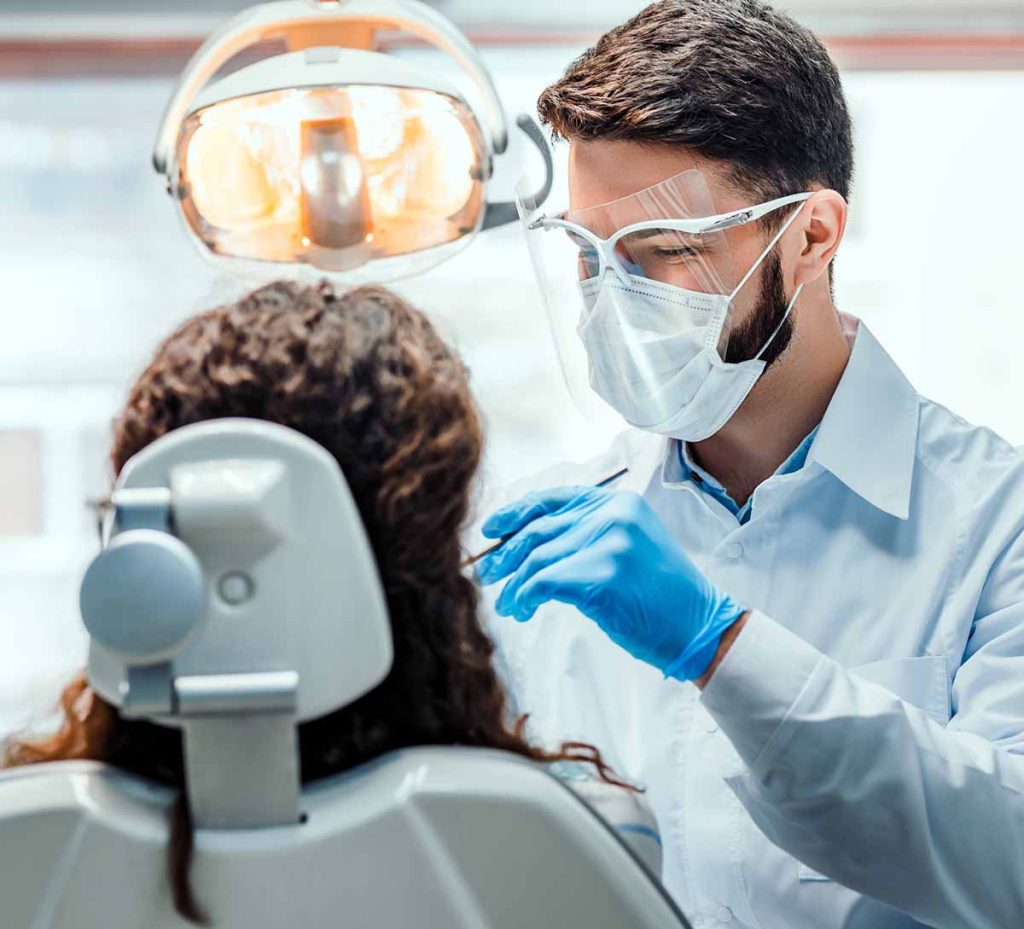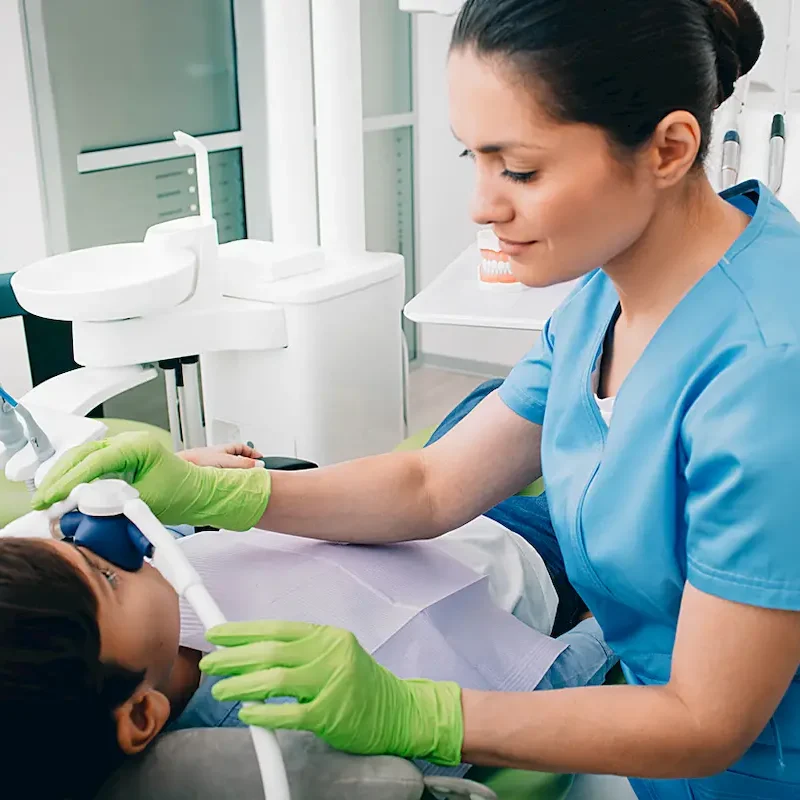At The Dental Anesthesia Center, we understand that dental anxiety is a genuine concern for many patients.
Sedation dentistry offers a solution, allowing those with fears or special needs to receive necessary dental care comfortably. We’ll walk you through the types of sedation available, how they work, and what you can expect during your visit.

What is Sedation Dentistry?
Sedation dentistry uses medication to help patients relax during dental procedures. It’s often called “sleep dentistry,” although patients usually remain awake except under general anesthesia. Sedation can be used for everything from simple cleaning to more complex procedures.
Types of Dental Sedation
Nitrous Oxide (Laughing Gas)
Nitrous oxide, commonly known as laughing gas, is a mild sedative inhaled through a mask placed over your nose. It helps you relax and can produce feelings of euphoria. The effects wear off quickly once the mask is removed.
What to expect: You’ll feel relaxed and slightly giddy but remain fully conscious. How it works: The gas is mixed with oxygen and inhaled throughout the procedure. It is best for mild anxiety, short procedures, and patients who want to drive themselves home afterward.
Oral Sedation
Oral sedation involves taking a prescribed pill, usually from the benzodiazepine family, about an hour before your procedure.
What to expect: You’ll feel drowsy but remain awake. Some patients may fall asleep but can be easily awakened. How it works: The medication helps reduce anxiety and may cause amnesia about the procedure. It is best for moderate anxiety and more prolonged procedures.
IV Sedation
Intravenous (IV) sedation delivers sedative medication directly into your bloodstream.
What to expect: You’ll be in a deep state of relaxation and may not remember much of the procedure. How it works: A trained anesthesiologist administers and monitors the sedation throughout the procedure. It is best for severe anxiety, complex procedures, and patients with special needs.
General Anesthesia
General anesthesia renders you completely unconscious during the dental procedure.
What to expect: You’ll be completely unaware of your surroundings and feel no pain. How it works: Medication is administered through IV or inhalation and carefully monitored by an anesthesiologist. It is best for extensive procedures, patients with severe anxiety, or certain medical conditions.
The Sedation Dentistry Process
Before the Procedure:
- Your dentist will review your medical history and current medications to determine the most appropriate type of sedation.
- You’ll receive instructions about eating and drinking before the procedure, depending on the type of sedation used.
- For oral sedation, IV sedation, or general anesthesia, you’ll need someone to drive you home afterward.
During the Procedure:
- Your vital signs will be monitored throughout the procedure.
- The level of sedation can be adjusted as needed.
- Local anesthetic will still be used to ensure you don’t feel pain.
After the Procedure:
- Recovery time varies depending on the type of sedation used.
- You may feel groggy or sleepy for several hours after the procedure.
- Your dentist will provide aftercare instructions specific to your procedure and type of sedation.
Benefits of Sedation Dentistry
- Anxiety Relief: Helps patients with dental phobias receive necessary care.
- Pain Management: Reduces discomfort during lengthy or complex procedures.
- Time Efficiency: Allows dentists to perform multiple procedures in one visit.
- Reduced Gag Reflex: Helps patients who have a sensitive gag reflex.
- Memory Suppression: Many patients have little to no memory of the procedure.


Is Sedation Dentistry Right for You?
Sedation dentistry can be beneficial for patients who:
- Have dental anxiety or phobia
- Have a low pain threshold
- Can’t sit still in the dentist’s chair
- Have a strong gag reflex
- Need a large amount of dental work completed
However, it’s not suitable for everyone. Factors like pregnancy, certain medical conditions, or taking specific medications may affect your eligibility for sedation.
Safety and Risks
When administered by trained professionals, sedation dentistry is very safe. However, as with any medical procedure, there are some risks. These can include:
- Nausea and vomiting
- Headache
- Prolonged drowsiness
- In rare cases, allergic reactions or complications from underlying health conditions
At The Dental Anesthesia Center, our experienced professionals prioritize your safety and comfort. We carefully assess each patient’s needs and medical history to determine the most appropriate and safest form of sedation.
Sedation dentistry has revolutionized dental care for many patients, making it possible to receive necessary treatments without anxiety or discomfort. Understanding the options available and what to expect lets you decide whether sedation dentistry is right for you.
Contact us
If you have questions about sedation dentistry or want to discuss options, please get in touch with us at The Dental Anesthesia Center. We’re committed to providing comfortable, anxiety-free dental experiences for all our patients.

